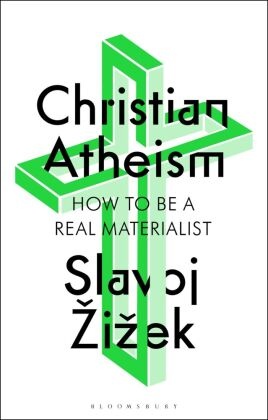Christian Atheism - How to Be a Real Materialist
| Verlag | Bloomsbury Trade |
| Auflage | 2024 |
| Seiten | 312 |
| Format | 15,2 x 1,9 x 21,9 cm |
| Gewicht | 394 g |
| Artikeltyp | Englisches Buch |
| EAN | 9781350409316 |
| Bestell-Nr | 35040931UA |
If we want to be true atheists, do we have to begin with a religious edifice and undermine it from within?
Slavoj Zizek has long been a commentator on, and critic of, Christian theology. His preoccupation with Badiou's concept of 'the event' alongside the Pauline thought of the New Testament has led to a decidedly theological turn in his thinking. Drawing on traditions and subjects as broad as Buddhist thought, dialectical materialism, political subjectivity, quantum physics, AI and chatbots, this book articulates Zizek's idea of a religious life for the first time.
Christian Atheism is a unique insight into Zizek's theological project and the first book-length exploration of his religious thinking. In his own words, "to become a true dialectical materialist, one should go through the Christian experience." Crucial to his whole conception of 'experience' is not some kind of spiritual revelation but rather the logic of materialistic thought. This affirmation of Christian theology whilst simultaneously deconstructing it is a familiar Zizekian move, but one that holds deep-seated political, philosophical and, in the end, personal import for him.
Here is Zizek's most extensive treatment of theology and religion to date.
Inhaltsverzeichnis:
Introduction: Why True Atheism HAS to be Indirect
1. Let a Religion Deplete Itself
2. Why Lacan is not a Buddhist
3. From Superpositions to Athings
4. The Sacred, The Obscene, and the Undead
5. Neque Homo Neque Deus Neque Natura
6. Why Politics is Immanently Theological
Conclusion: The Need for Psychoanalysis
Rezension:
In Christian Atheism, Slavoj Zizek probes the boundaries between Christianity, atheism and materialism through analyses of modern thinkers including Hegel, Marx and Lacan. The book simultaneously affirms and deconstructs Christian theology, arguing for its relevance in conceiving of contemporary political commitment. Zizek's knack for drawing together disparate stands of thought to explore emancipatory politics makes for a challenging and perceptive book. LSE Review of Books

